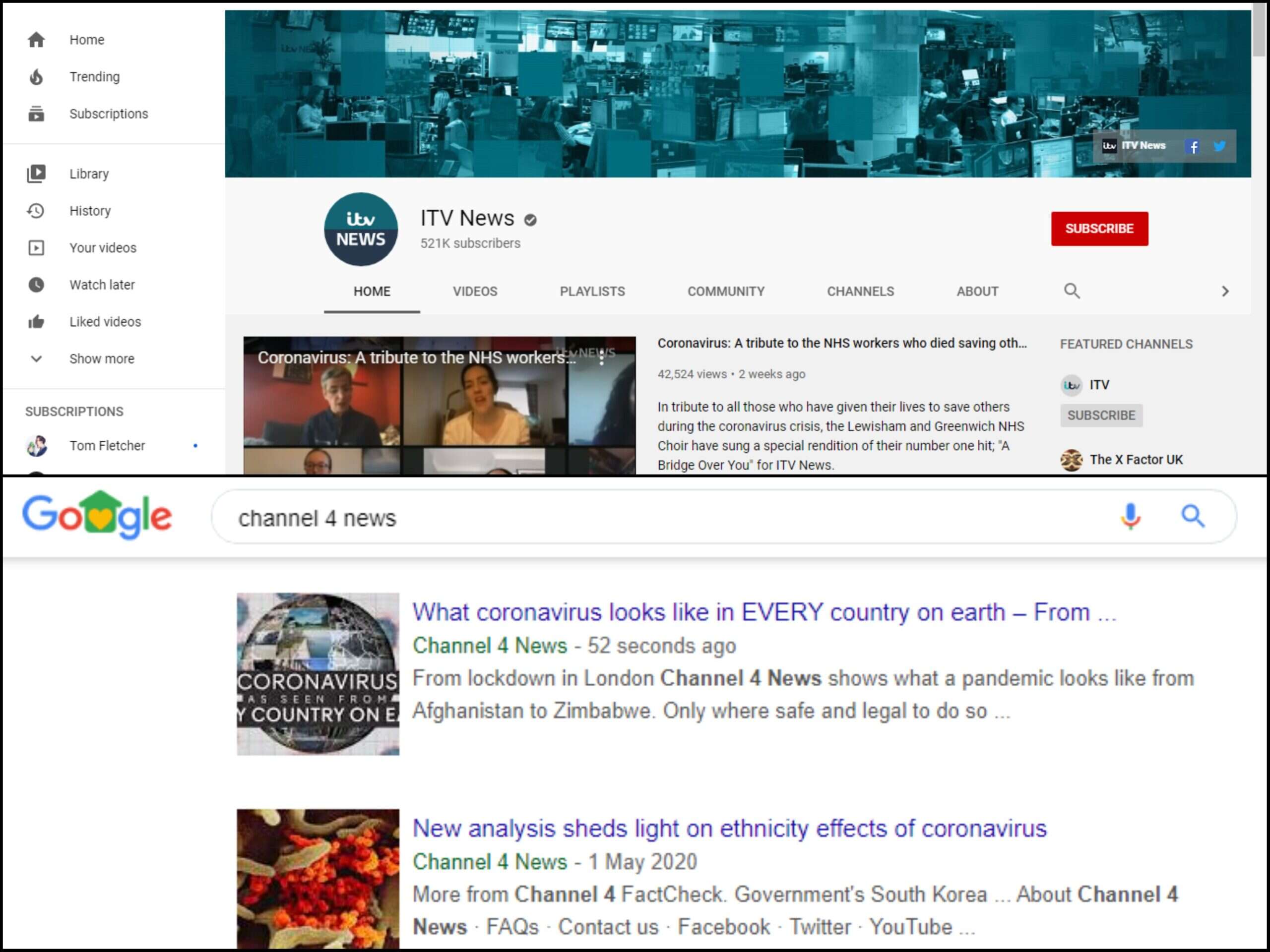
ITV News, Channel 4 News and 5 News producer ITN wants the UK government to impose “strong sanctions” on social platforms that do not take stringent measures to remove fake news.
In its submission to an inquiry on the future of journalism run by the House of Lords Committee on Communications and Digital, ITN also called for social platforms to give preferential advertising rates to public service broadcasters and other quality publishers.
Peers launched the inquiry in February to look at how journalists can be supported to adapt to the changing news media landscape, how they can become more trusted by the public, and whether public policy could better support journalism training.
ITN chief executive Anna Mallett said: “As we face a global pandemic, this review could not be more urgent. All our news programmes are seeing sharp increases in viewing figures as people seek out reliable, trustworthy information.
“That audiences are turning to the established, professional sources of journalism at times of crisis serves to underline their enormous value to society and underscores a need for action to protect the PSBs and quality journalism in the future.”
Among ITN’s recommendations to the inquiry is that social platforms should face sanctions as serious as those slapped on public service broadcasters when they break the Broadcasting Code – up to and including losing their licence after repeated breaches.
ITN said it was paramount to have “clear and strong” sanctions on internet companies breaking the rules, warning that “regulatory fines can be treated as an easily-absorbed ‘cost of doing business’ by the largest new tech companies”.
It called for Ofcom to lead negotiations between platforms and news organisations with the goal of agreeing a voluntary code of conduct – but urged the Government to make such rules mandatory if nothing is agreed after a certain time period.
Financial remuneration for content
ITN also suggested the UK follow the example of Australia, which is planning to publish draft rules for the tech giants to pay fair compensation for the journalistic content siphoned from news media.
“News is premium and expensive content, and distribution across a wider range of platforms requires additional editorial and technical resource, at additional cost, to drive continued innovation, in order to reach audiences who might otherwise not be reached with authoritative journalism,” ITN said.
One of its suggestions was preferential rates for quality news providers at the expense of the platforms. Another was a tax relief to support “investigative, international and regional reporting”.
ITN also mooted a kite-mark that would identify trusted news providers, for whose content platforms would pay a premium.
But it also raised the issue of how platforms could be “incentivised to support quality journalism, financial or otherwise”.
“Currently there is no more value to them providing quality news than there is of providing fake news,” it said.
“Indeed, fake news which ‘goes viral’ may be of more value to the social platforms, with the platform advertising model rewarding sensationalism and fake news far more than it does thorough, accurate and impartial journalism.”
ITN also wants more prominence given to content from public service broadcasters aimed at young people, such as ITV News’ The Rundown news briefing on Instagram.
In its own submission to the inquiry, the Society of Editors warned against “too-draconian” measures to clamp down on misinformation, saying this could lead to the tech giants being “backed into a corner where they take too broad an approach to removing or preventing the spread of false information”.
“We do not want genuine news being suppressed by algorithms created in haste to trawl the net removing poorly identified content.”
Email pged@pressgazette.co.uk to point out mistakes, provide story tips or send in a letter for publication on our "Letters Page" blog
